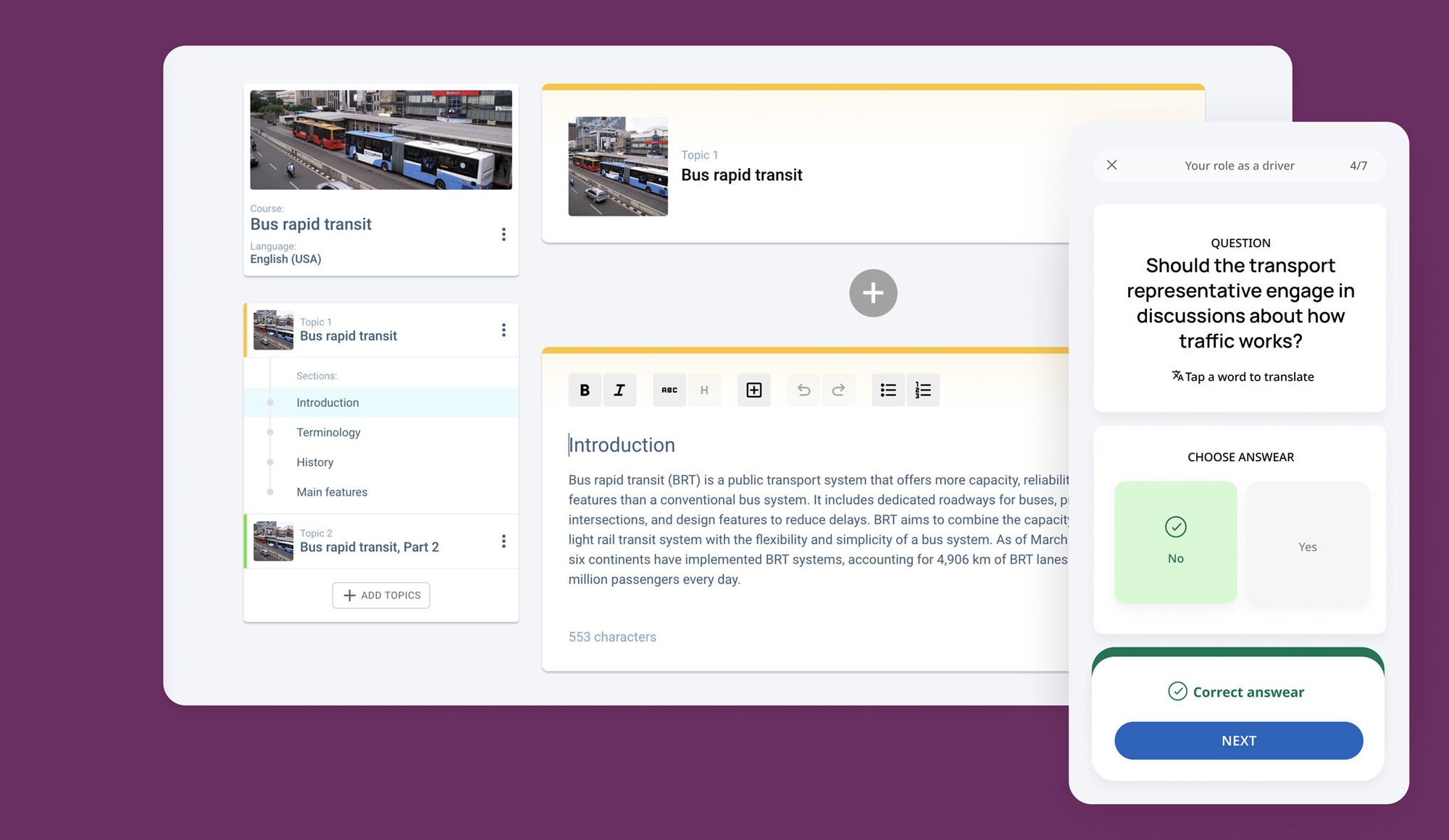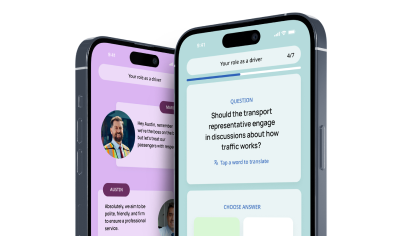Frontline employees are the backbone of any organisation. They often serve as the face of the brand and interact directly with customers. Their motivation is crucial for delivering exceptional service and, ultimately, for the business's success. This article highlights the importance of keeping these key employees engaged and provides ten proven strategies to inspire and empower them.
Understanding the importance of motivating frontline employees
Frontline employees have direct contact with customers, making them pivotal in shaping the customer experience. Motivation is crucial in their ability to deliver exceptional service, problem-solve effectively, and embody your brand's values. When frontline employees are motivated, they are more likely to go above and beyond their duties, resulting in increased customer satisfaction, loyalty, and, ultimately, higher bottom-line profits.
Moreover, motivated employees are happier, more engaged, and less likely to leave the organisation. Investing in their motivation creates a positive working environment and reduces turnover, allowing you to retain experienced individuals who understand your business and have built rapport with customers.
Frontline employees are often the face of your company, interacting directly with customers daily. Their interactions can significantly impact the overall perception of your brand and influence customer loyalty. Motivated frontline employees are more likely to exude enthusiasm and positivity in their interactions, creating a welcoming and memorable customer experience.
Furthermore, motivated frontline employees are more inclined to take ownership of customer issues and resolve them efficiently. This proactive approach enhances customer satisfaction and contributes to a positive brand reputation. Investing in the motivation of frontline employees is, therefore, a strategic decision that can yield long-term benefits for your business.
1. Provide competitive compensation and benefits
It is essential to offer frontline employees competitive compensation and benefits packages. Fair and attractive salaries, performance-based incentives, healthcare coverage, retirement plans, and other perks demonstrate that you value their organisational contributions. Competitive compensation attracts top talent and motivates employees to perform at their best, knowing they are rewarded for their hard work.
When considering competitive compensation, it is essential to conduct regular market research to ensure that your salary and benefits packages remain in line with industry standards. By staying informed about market trends and competitor offerings, you can make strategic adjustments to your compensation strategy to stay competitive in attracting and retaining top talent.
Furthermore, a comprehensive benefits package can significantly enhance employee satisfaction and loyalty. Benefits such as flexible working arrangements, professional development opportunities, wellness programmes, and employee assistance services can contribute to a positive work environment and improve employee well-being. Investing in employee benefits demonstrates a commitment to your workforce's welfare and helps create a supportive and inclusive company culture.
2. Offer flexible scheduling options
Flexibility in scheduling can significantly impact frontline employees' motivation and work-life balance. Shift work or irregular working hours can be challenging, especially for employees with personal or family commitments. By offering flexible scheduling options, such as part-time hours, job sharing, or swapping shifts, you empower your employees to manage their personal lives more effectively, increasing job satisfaction and motivation.
Moreover, providing flexible scheduling options can also improve employee retention rates. Employees who feel that their employer values their personal needs and well-being are more likely to stay with the company long-term. This can reduce recruitment and training costs associated with workers with high turnover rates, ultimately benefiting the organisation.
Furthermore, offering flexible scheduling can enhance the overall company culture. Employees who control their work schedules tend to feel more trusted and respected by their employers. This sense of autonomy can foster a positive work environment where employees are more engaged, productive, and willing to go the extra mile for the business's success.
3. Create a culture of recognition
A culture of recognition is a powerful tool for motivating and inspiring frontline employees. Acknowledging their challenging work achievements and going the extra mile for customers creates a sense of pride and accomplishment. Implement a formal recognition program that includes peer-to-peer recognition, regular manager feedback, and rewards for exceptional performance. Celebrating achievements publicly and giving employees a platform to showcase their successes fosters a positive work environment and motivates employees to deliver consistent, high-quality service.
Building a culture of recognition within an organisation is not just about rewarding good performance; it is also about fostering a sense of belonging and appreciation among employees. Employees who feel valued and recognised for their efforts are more likely to be engaged and committed to their work. This can increase productivity, improve morale, and reduce turnover rates.
Moreover, a culture of recognition can have ripple effects beyond the workplace. Employees who feel appreciated and motivated are more likely to provide better customer service, increasing customer satisfaction and loyalty. This positive cycle of recognition, motivation, and performance can ultimately contribute to the overall success and growth of the business.
4. Ensure transparent communication
Transparent communication is vital to motivate frontline employees. Regularly share information about company goals, performance metrics, and business updates. Transparent communication enables employees to understand how their work contributes to the company's success and builds trust. It also encourages a sense of belonging and involvement in the decision-making process, motivating frontline employees by making them feel valued and informed.
Effective organisational communication is like the lifeblood that keeps the various departments and teams connected and functioning smoothly. By fostering an environment of transparency, leaders can create a culture of openness and honesty that permeates all levels of the company. This helps align everyone towards common goals and empowers employees to make informed decisions and take ownership of their work.
Moreover, transparent communication goes beyond just sharing information; it involves active listening and feedback mechanisms that allow employees to voice their opinions and concerns. This two-way exchange of information fosters collaboration and mutual respect, ultimately leading to a more engaged and motivated workforce. When employees feel heard and valued, they are more likely to go the extra mile in their roles, driving innovation and productivity within the organisation.
5. Provide constructive feedback regularly
Feedback is a powerful tool for growth and development. Regularly provide frontline employees with constructive feedback to help them improve their performance. Praise their strengths and address areas for improvement in a supportive manner. Offering guidance, coaching, and learning opportunities builds their skills and confidence, contributing to their overall motivation and job satisfaction.
Constructive feedback is not just about pointing out mistakes; it's also about recognising achievements and progress. By acknowledging the efforts and successes of frontline employees, you create a culture of appreciation and recognition within the team. This positive reinforcement can boost morale and encourage continuous improvement.
Moreover, feedback should be specific and actionable. Instead of vague comments, provide clear examples and suggestions for improvement. This level of detail helps employees understand what they need to work on and how they can enhance their performance. It also demonstrates that you have taken the time to observe their work closely, showing your investment in the person and their professional development.
6. Equip them with the right tools and resources
Frontline employees need the right tools and resources to perform their roles efficiently. Providing them with up-to-date technology, training programs, and easy access to resources empowers them to deliver exceptional service. Employees with the necessary tools and knowledge to succeed feel confident and motivated to excel.
Technology plays a crucial role in enhancing the efficiency and effectiveness of frontline employees. Organisations can streamline processes, improve communication, and strengthen customer interactions by equipping them with the latest tools and software. Training programs are also essential in keeping employees updated with industry trends, best practices, and new skills. Regular training sessions improve employee performance and boost morale and job satisfaction.
Moreover, easy access to resources such as manuals, guides, and support materials is vital for frontline employees to resolve customer issues promptly and effectively. Having a centralised database of information ensures that employees can quickly find solutions to common problems, increasing customer satisfaction and loyalty. Investing in the right tools and resources for frontline staff is a strategic decision that can significantly impact a business's success and reputation.
7. Offer flexible scheduling options
As mentioned earlier, flexibility in scheduling is crucial for frontline employees' motivation. By offering options such as remote work, compressed workweeks, or flexible start and end times, you demonstrate trust in their ability to manage their time effectively. Flexibility promotes work-life balance and enables employees to handle personal commitments while maintaining productivity and motivation.
Flexible scheduling can also increase employee satisfaction and retention rates. Employees who feel that their employer values their personal needs and responsibilities are more likely to stay committed to their jobs and perform at a high level. This sense of loyalty and dedication can positively impact the overall morale and atmosphere within the workplace, fostering a culture of trust and mutual respect.
Moreover, flexible scheduling options can attract a wider talent pool during recruitment. Many job seekers today prioritise a healthy work-life balance and seek employers who can accommodate their individual needs. By highlighting your organisation's commitment to flexibility and employee well-being, you can position yourself as an attractive employer in a competitive job market.
8. Encourage employee participation in decision-making
Involving frontline employees in organisational decisions that impact their roles fosters motivation and engagement. Seek their input, ideas, and suggestions on process improvements, customer experience strategies, and workflow enhancements. Encouraging employee participation empowers them, making them feel valued and invested in the company's success.
Employee participation in decision-making can lead to a more inclusive and dynamic work environment. By involving employees in discussions about the company's direction, you tap into diverse perspectives and experiences that can drive innovation and creativity. This collaborative approach benefits the organisation and helps build a strong sense of teamwork, leadership and camaraderie among staff members.
Furthermore, when employees feel that their opinions are heard and valued, they are more likely to take ownership of their work and go the extra mile to achieve shared goals. This sense of ownership can increase job satisfaction and loyalty, leading to higher retention rates and a more positive company culture. By fostering a culture of open communication and collaboration, organisations can harness the full potential of their workforce and create a thriving, productive workplace.
9. Establish open lines of communication
Open and effective communication is essential to motivate frontline employees. Be accessible to your team, actively listen to their concerns, and promote an environment where employees feel comfortable voicing their opinions. Regular team meetings, one-on-one conversations, and anonymous feedback platforms allow employees to share their perspectives, fostering open dialogue and increasing motivation.
Furthermore, creating a culture of transparency within the organisation can significantly enhance communication. You can build trust and keep everyone aligned towards common objectives by sharing relevant information openly with employees, such as company goals, performance metrics, and upcoming changes. Transparency also helps reduce rumours and misunderstandings, ensuring everyone is on the same page.
In addition to formal communication channels, informal interactions are crucial in establishing rapport and trust among team members. Encouraging casual conversations, organising team-building activities, and creating social spaces within the workplace can strengthen relationships and improve overall communication dynamics. These informal settings often lead to exchanging ideas and perspectives in a more relaxed environment, fostering creativity and collaboration.
10. Prioritise health and well-being initiatives
Elevating the well-being of frontline employees generates motivation and loyalty. Implement health and wellness initiatives, such as employee assistance programs, access to mental and health care and resources, and wellness challenges. Encouraging a work-life balance, promoting healthy habits, and prioritising overall well-being sends a powerful message of care and support, motivating employees to perform at their best.
Organisations must recognise the importance of prioritising the health and well-being of their workforce. Companies can create a positive and supportive work environment by investing in initiatives that support employees' physical and mental well-being. Access to resources such as counselling services, health screenings, and fitness programmes can significantly improve employee morale and productivity.
Fostering a culture that values health and well-being benefits individual employees and contributes to the organisation's overall success. Employees who feel supported and cared for are more likely to be engaged and committed to their work. This, in turn, can lead to lower turnover rates, higher job satisfaction, and increased performance levels across the board.
Bonus tip from the Lingio team: offer interactive learning solutions for your frontline employees
At Lingio, we understand the positive impact of interactive learning solutions on frontline employees' motivation. By providing employees with engaging and interactive training programs, you equip them with new skills, knowledge, and confidence. Interactive learning solutions, such as scenario-based simulations, gamified quizzes, and mobile learning platforms, foster continuous growth and engagement, motivating frontline employees to excel.
Moreover, interactive learning solutions benefit individual employees and contribute to the organisation's overall success. Companies can enhance customer service, increase productivity, and drive innovation by investing in developing frontline staff through interactive training. These solutions create a workplace learning culture where employees are encouraged to seek new knowledge and skills to improve their performance.
Furthermore, the data gathered from interactive learning platforms can provide valuable insights into employees' learning progress and areas for improvement. This data-driven approach allows companies to tailor training programs to meet specific needs, address skill gaps, and effectively measure the impact of learning initiatives. By leveraging technology and interactive tools, organisations can create a dynamic learning environment that empowers frontline employees to reach their full potential.
Empower your frontline team with Lingio: the path to motivation and success
Motivating frontline employees is essential for their performance, job satisfaction, and overall success of your organisation. By implementing the ten proven examples discussed in this article, you can create a positive work environment that inspires, empowers, and motivates your team. Motivated frontline employees contribute to enhanced customer experiences, increased loyalty, and long-term business success.
With our innovative learning solutions tailored specifically for frontline employees, Lingio enhances their skills and ignites a passion for excellence. Our platform offers an array of engaging, interactive training courses designed to fit the unique needs of your team, fostering a sense of achievement and growth.
Ready to elevate your team's motivation to new heights? Discover how our tailored solutions can infuse your frontline workforce with the drive, skills, and enthusiasm necessary for your business to thrive. Together, let's unlock your employees' full potential and chart a course towards lasting success.
FAQs
1. How can I measure the effectiveness of my employee motivation strategies?
Measuring the effectiveness of your employee motivation strategies is crucial to make data-driven decisions. You can analyse key performance indicators, such as employee satisfaction surveys, turnover rates, customer feedback, and productivity metrics. Additionally, conducting regular pulse surveys and soliciting employee feedback can provide valuable insights into their motivation levels.
Understanding the impact of your employee motivation strategies is essential for fostering a positive work environment and enhancing overall productivity. By tracking and analysing various metrics, you can identify trends, strengths, and areas for improvement within your workforce. This data-driven approach enables you to tailor your strategies to meet your employees' needs and preferences better, leading to increased motivation and engagement.
2. What if I have a limited budget for employee motivation initiatives?
Motivating frontline employees can sometimes require a small budget. While competitive compensation and benefits are essential, you can also focus on non-monetary motivators, such as recognition programs, flexible scheduling, and opportunities for growth and development. Fostering a positive work culture and showing genuine appreciation can create a motivational environment without breaking the bank.
Investing in low-cost or no-cost initiatives can significantly impact employee motivation and morale. Simple gestures like public recognition, personalised thank-you notes, or team-building activities can dramatically boost employee engagement and loyalty. By leveraging creative and thoughtful approaches, you can effectively motivate your team while staying within budget constraints.
3. How often should I provide feedback to my frontline employees?
Regular and timely feedback is crucial for the growth and motivation of frontline employees. Strive to provide feedback frequently, such as weekly or monthly check-ins. Constructive feedback addresses both positive aspects and areas for improvement, allowing employees to continuously learn and grow contributing to their motivation and professional development.
Feedback is a powerful tool for enhancing performance and fostering a culture of continuous improvement within your organisation. Establishing a consistent feedback loop creates opportunities for open communication, skill development, and goal alignment. This ongoing dialogue motivates employees to strive for excellence and strengthens the relationship between managers and their teams.


Table of contents
Intro
Understanding the importance of motivating frontline employees
Bonus tip from the Lingio team: offer interactive learning solutions for your frontline employees
Empower your frontline team with Lingio: the path to motivation and success
FAQs


